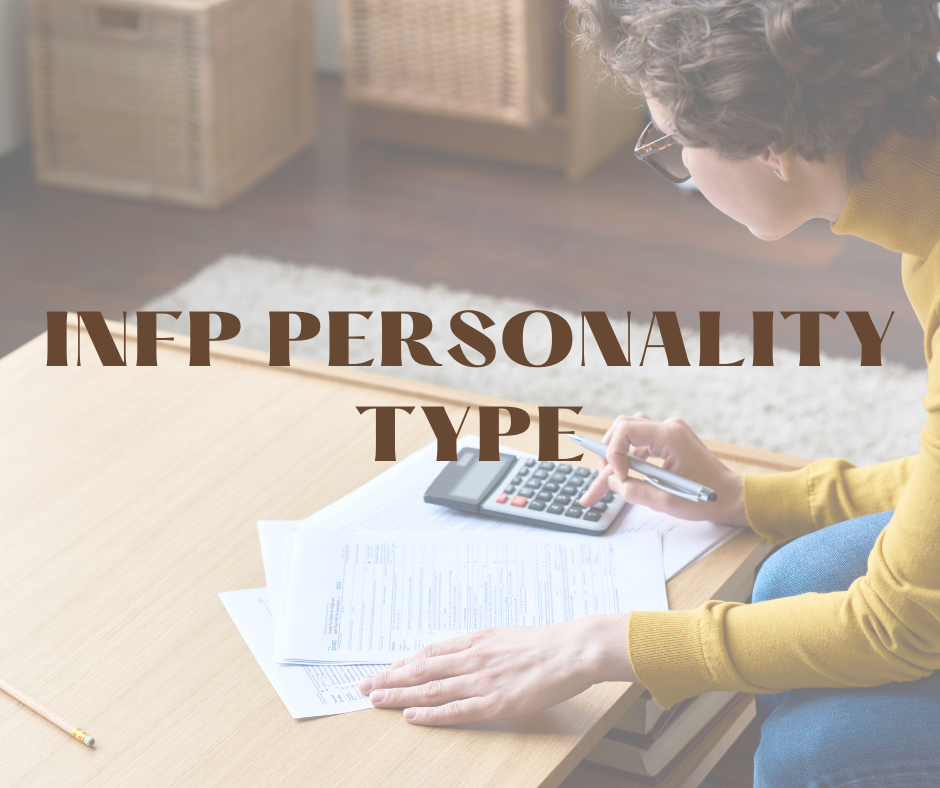The INFP personality type is one of the 16 personality types described by the Myers-Briggs Type Indicator (MBTI). People with this personality type are often referred to as “Idealists” because of their strong sense of personal values and beliefs. They are introverted, intuitive, feeling, and perceiving, which means they prefer to spend time alone, rely on their instincts, make decisions based on emotions, and keep their options open.
INFP personality types are known for their compassion, idealism, and creative problem-solving skills. They have a strong desire to make the world a better place and often feel a sense of purpose to help others. They are empathetic and value authenticity in their relationships, making them great listeners and supportive friends.
However, INFP personality type can struggle with assertiveness and can have a tendency to be passive or avoid conflict. They may also have difficulty setting boundaries and may feel overwhelmed by their emotions at times. Despite these challenges, INFPs are driven by their passions and their sense of purpose, which helps them overcome obstacles and pursue their goals.
INFPs are often creative and imaginative, and they may be drawn to careers in the arts, writing, counseling, or education. They are happiest when they are doing work that aligns with their values and beliefs, and they are fulfilled when they can make a positive impact on the world.

Table of Contents
INFP Personality Type Characteristics
Common characteristics of the INFP personality type:
- Idealism: INFPs have a strong sense of personal values and beliefs, and they have a desire to make the world a better place. They are often idealistic and strive to bring their vision of a better world to reality.
- Empathy: INFP Personality Types are empathetic and compassionate, which makes them great listeners and supportive friends. They often put others before themselves and value authenticity in their relationships.
- Creativity: INFPs are often imaginative and creative, and they may be drawn to careers in the arts, writing, counseling, or education. They enjoy finding creative solutions to problems and expressing themselves through their work.
- Introversion: INFPs prefer to spend time alone and have a strong need for privacy and solitude. They are often reserved and prefer to avoid large crowds or noisy environments.
- Intuition: INFPs rely on their instincts and intuition to make decisions, and they often have a strong sense of what is right and wrong. They are sensitive to others’ emotions and are able to pick up on subtle cues and nuances.
- Feeling: INFPs make decisions based on their emotions, and they are often driven by their passions and sense of purpose. They may struggle with assertiveness and may have a tendency to avoid conflict.
- Perceiving: INFP Personality Types prefer to keep their options open and avoid making decisions too quickly. They may have difficulty setting boundaries and may struggle with feeling overwhelmed by their emotions at times.
INFP-T Personality Type
INFP-T stands for Introverted, Intuitive, Feeling, Perceiving with a Turbulent trait, and is a personality type based on the Myers-Briggs Type Indicator (MBTI). The MBTI categorizes individuals based on four dichotomies: Introversion vs. Extraversion, Intuition vs. Sensing, Thinking vs. Feeling, and Judging vs. Perceiving. The “T” at the end of the INFP-T personality type indicates that the individual has a Turbulent trait.
Individuals with the INFP-T personality type have many of the same characteristics as those with just the INFP personality type, such as idealism, compassion, and a strong sense of personal values. However, individuals with the INFP-T trait are often more sensitive to stress and are more prone to self-doubt and insecurity. They may have a tendency to be highly self-critical and may struggle with feelings of inadequacy or inferiority. Despite these challenges, INFP-Ts are driven by their passions and sense of purpose and are fulfilled when they are making a positive impact on the world.
INFP-A Personality Type
INFP-A stands for Introverted, Intuitive, Feeling, Perceiving with an Assertive trait, and is a personality type based on the Myers-Briggs Type Indicator (MBTI). The MBTI categorizes individuals based on four dichotomies: Introversion vs. Extraversion, Intuition vs. Sensing, Thinking vs. Feeling, and Judging vs. Perceiving. The “A” at the end of the INFP-A personality type indicates that the individual has an Assertive trait.
Individuals with the INFP-A personality type have many of the same characteristics as those with just the INFP personality type, such as idealism, compassion, and a strong sense of personal values. However, individuals with the INFP-A trait tend to be more confident and self-assured, and they are less likely to be troubled by stress or self-doubt. They may have a stronger sense of personal identity and may be more assertive in pursuing their goals and making decisions.
Conclusion
In conclusion, the INFP personality type is a unique combination of idealism, compassion, and creative problem-solving skills. They are driven by their passions and their sense of purpose, and they are happiest when they are making a positive impact on the world. Understanding their strengths and challenges can help INFPs better understand themselves and find fulfillment in their personal and professional lives.
More Reads:
- INFP Celebrities
- INFP Careers – Best Jobs For INFP
- INFP Compatibility
- INFP Characters – Fictional & Anime
Learn more about the human mind, discover yourself, and remain motivated with Evolve! If you liked our article, try the Evolve App to help you move on and focus on your growth. Evolve has a range of guided audios that help you proactively manage stress, reduce anxiety, and make mindfulness light and joyful, so you can be balanced at any time! The Evolve app is now live globally on Android and Apple. Click here to try it for free!